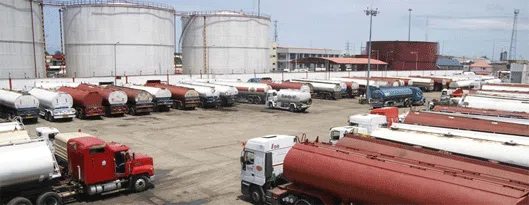The Nigerian aviation industry is set for a major transformation with the upcoming commissioning of the Joint User Hydrant Installation 2 (JUHI-2), the country’s largest airside jet fuel depot. The facility will officially open on October 17, 2024, located off the Murtala Muhammed International Airport (MMIA) road in Lagos.
According to Mrs. Patience Dappa, Group Managing Director of Masters Energy and Chairperson of the JUHI-2 Board, the depot will act as a crucial storage and supply hub for jet fuel, ensuring a consistent fuel supply to MMIA, MMA2, MMA1, and nearby airbases.
Mr. Abiola Lawal, MD/CEO of Eterna Plc and Chairman of the JUHI-2 Commissioning Committee, emphasized that the facility will support a wide range of aviation operations, including domestic, international, cargo, hajj, business jets, and other scheduled and non-scheduled flights. He stated, “This state-of-the-art depot will significantly enhance aviation operations, meeting the fuel demands of various flight activities.”
The commissioning event will be attended by key stakeholders from both the aviation and energy sectors, and will be presided over by Hon. Minister of Aviation and Aerospace Development, Mr. Festus Keyamo, SAN, along with Hon. Minister of State for Petroleum Resources (Oil), Senator Heineken Lokpobiri.
JUHI-2 is a collaborative venture involving Eterna Plc, Masters Energy, Techno Oil, Quest Oil, Rahamaniyya, Ibafon Oil, and First Deep Water Limited. The facility spans 46,000 square meters and boasts a storage capacity of 15 million liters of Jet A1 fuel. It features cutting-edge designs, including the latest filtration systems, the ability to load four bowsers simultaneously, a dedicated jet fuel discharge system with four trucks, a modern laboratory, and advanced fire prevention measures.
“The depot’s advanced operational support facilities position it as the best of its kind in Nigeria,” Mr. Lawal added.
The strategic location of JUHI-2 is expected to facilitate efficient fuel distribution and logistics management, ensuring rapid response times and supporting mission planning. Furthermore, the facility is anticipated to generate employment, stimulate local economic growth, and contribute to the development of the airport area.

